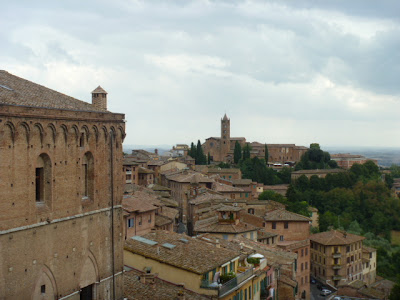Merry Christmas!
Friends, among the works of art about the Nativity of Our Lord, one
that struck me for its simplicity is George La Tour’s “Adoration of the Shepherds”
A classmate presented it to me recently.
The adoration of the sheperds was a common theme among XVII
century’s painters. Here, de La Tour presents it with drastic simplicity,
without angels, clouds, or halos. De La Tour reveals the capacity to focus on
the essential, excluding every superficial detail and concentrates on the
effects of the only source of light in the scene. The baby looks like a small mummy,
but has a well done asleeping face. The shepherds are people simple but with
great dignity. It can be seen in their cloths, hair and the tools for their
labor. A little sheep smells the baby and some wheat. Mary appears dominant by
the left and her hands are the only ones in an attitude of prayer. Joseph
protects them with the heat of a lamp. The hands movements are awesome. They express
life: work, nourishment, feast, protection and prayer. De La Tour represents a
world of internal light with great serenity. He proposes to see interiorly,
which is the only way to feed a presence. The seer is invited to take place to
complete the circle around the baby.
Let’s friends take a minute today, in silence, total silence
and solitude and take that place to complete the circle opened by Mary, Joseph
and the shepherds. Let’s rest in silence in front of Him called by the
evangelist the Savior, the Lord Christ.
Like the pope said no so long ago, nothing
miraculous, nothing extraordinary, nothing magnificent is given to the
shepherds as a sign. All they will see is a child wrapped in swaddling clothes,
one who, like all children, needs a mother’s care; a child born in a stable,
who therefore lies not in a cradle but in a manger. God ’s sign is the baby in
need of help and in poverty. Only in their hearts will the shepherds be able to
see that this baby fulfills the promise of the prophet Isaiah, which we heard
in the first reading: "For to us a child is born, to us a son is given;
and the government will be upon his shoulder" (Is 9:5). Exactly the same
sign has been given to us. We too are invited by the angel of God, through the
message of the Gospel, to set out in our hearts to see the child lying in the
manger.
God’s sign is simplicity. God’s sign is the baby. God’s sign is that he makes himself small for us. This is how he reigns. He does not come with power and outward splendor. He comes as a baby – defenseless and in need of our help. He does not want to overwhelm us with his strength. He takes away our fear of his greatness. He asks for our love: so he makes himself a child. He wants nothing other from us than our love, through which we spontaneously learn to enter into his feelings, his thoughts and his will – we learn to live with him and to practice with him that humility of renunciation that belongs to the very essence of love. God made himself small so that we could understand him, welcome him, and love him.
God’s sign is simplicity. God’s sign is the baby. God’s sign is that he makes himself small for us. This is how he reigns. He does not come with power and outward splendor. He comes as a baby – defenseless and in need of our help. He does not want to overwhelm us with his strength. He takes away our fear of his greatness. He asks for our love: so he makes himself a child. He wants nothing other from us than our love, through which we spontaneously learn to enter into his feelings, his thoughts and his will – we learn to live with him and to practice with him that humility of renunciation that belongs to the very essence of love. God made himself small so that we could understand him, welcome him, and love him.
 |
| The Altar de la Patria |
 |
| Via del Corso displays lights with the Italian flag colors. This year Italy celebrates 150 years as a Republic |
 |
| Of course, the Coliseum deserves its Christmas tree also. |
 |
| Via del Corso from the Piazza del Populo |
 |
| Via Condoti form the Spanish steps |
 |













































